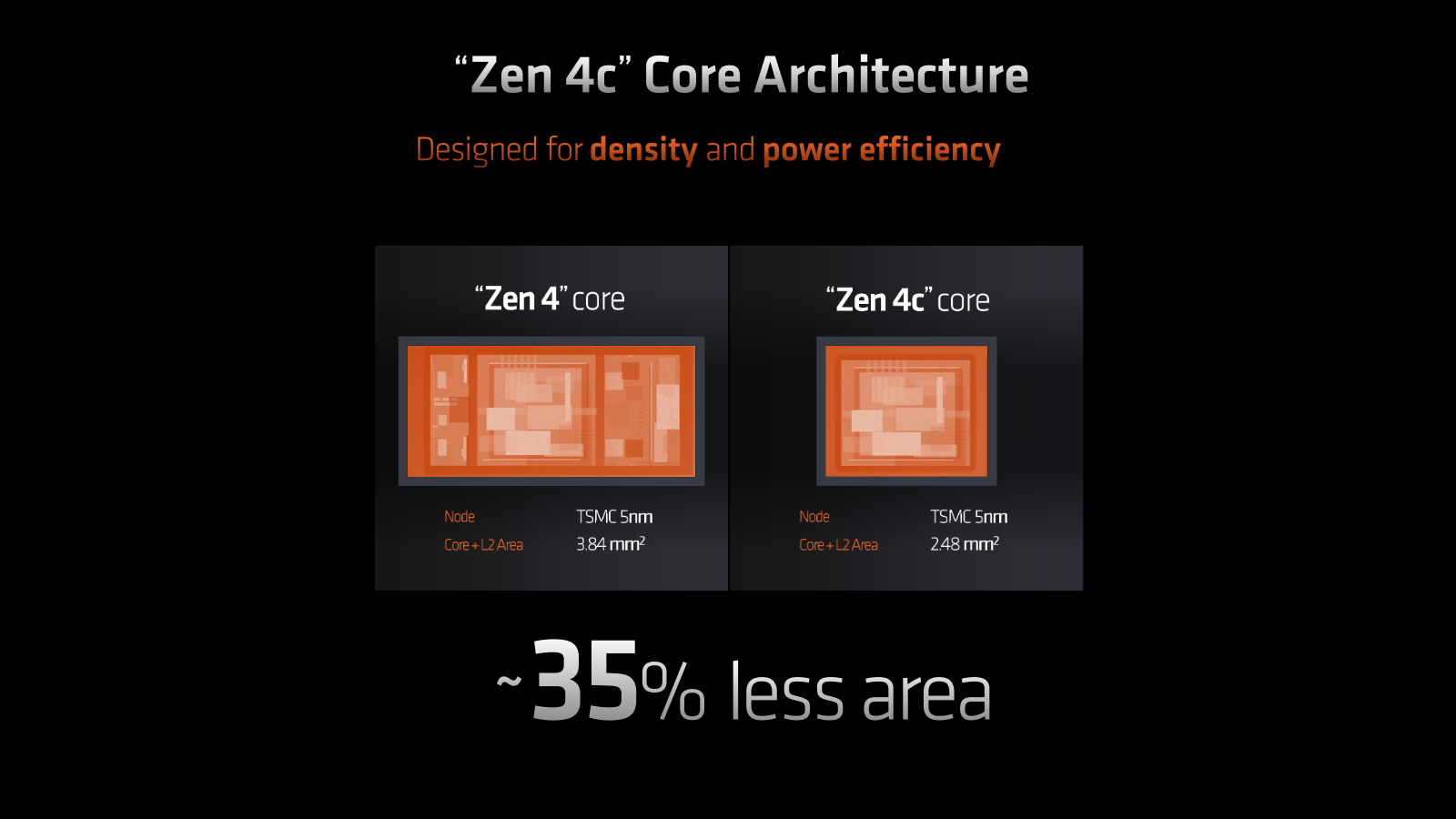AMD introduced the first notebook processor that uses the Zen 4c core. Smaller processor cores are intended to enable more efficient CPUs, although performance should not be lower than “normal” Gen 4 cores.
Zen 4c is a modified version of Zen 4 designed for greater efficiency. At the same time, the cores require less space on the die, which enables better scalability. AMD is touting a space savings of around 35 percent. However, they have Zen 4c core Compared to regular Gen 4 cores, it has a reduced cache. Despite everything, IPC (“instructions per cycle”) should be unchanged compared to Zen 4. Previously, these processor cores were only used in Epyc server processors and Ryzen Z1 chips. Now the Zen 4c is also celebrating its notebook debut.
AMD Ryzen 7 7700X3D
AMD Ryzen 7 700X3D is the manufacturer’s gaming flagship with 3D cache. The CPU for Socket AM5 offers 8 cores and 16 threads with clock speeds up to 5 GHz. CPU is currently available for approx 405 euros (buy here) For purchase.
Ryzen 5 7545U with four Zen 4c cores
This is the beginning AMD Ryzen 5 7545U, which has two Zen 4 cores and four Zen 4c cores. Thanks to SMT, a total of twelve threads are available. The base clock here is 3.2 GHz, although the boost can even be clocked up to 4.9 GHz. The graphics unit is a Radeon 740M with 4 compute units and 256 shader units. Here TDP is 15 to 30 watts.
will appear next to it Ryzen 3 7440U A smaller APU with one Zen 4 core and three Zen 4c cores. Different processor cores can operate with a base frequency of 3.0 GHz and a boost clock of 4.7 GHz. Similar to the Ryzen 5 7540U, a Radeon 740M is used as the iGPU.

Ryzen 8000 comes with “Strix Point” Zen 5c
Future AMD APUs should also use this hybrid concept. so should Ryzen 8000 “Strix Point” Also combine the Zen 5c core with the Zen 5 core. However, this method should not be separated from a solution that only uses Zen 4 cores. This is where the whole thing differs from Intel’s “Efficiency Core”, which contributes only a small portion to performance. In contrast, the Zen 4c is intended to provide real added value.
For reasons of better readability, masculine, feminine and different language forms (m/f/d) are not used at the same time. All personal names apply equally to all genders.









![4 Key Predictions for the 2020 Holiday Shopping Season [Infographic]](https://www.socialmediatoday.com/user_media/cache/ed/94/ed943b47a7924e83783460f5fbf3c746.jpg)
